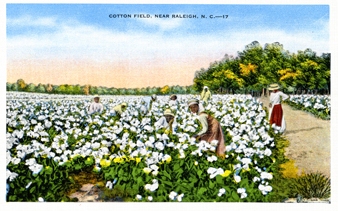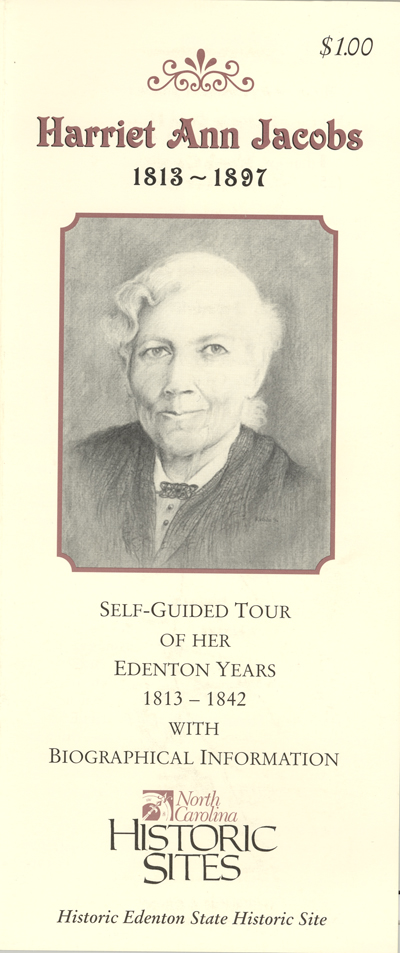North Carolina’s agricultural roots run deep, and we have unveiled a new pathfinder called “Agriculture in North Carolina” in our research guides to outline the maps, magazines, pamphlets, postcards, and histories related to the state’s rich agricultural history. The pathfinder covers industries that are known successes, such as hog farming, but also industries such as peanut farming (Actually, North Carolina ranks third in the nation in this crop production.). Sections about the State Fair, farmers’ markets, plantation life, education, and women and agriculture are also featured. If you’re interested in anything and everything having to do with North Carolina agriculture, this is a great place to get started!
Erin Griffin
W.E.B. Du Bois and Durham
Did you know that W.E.B. Du Bois was so impressed with booming African American business and commerce in early twentieth century Durham, he wrote an essay about it?
“Du Bois’s essay ‘The Upbuilding of Black Durham'[…]sounds a hopeful note, praising a North Carolina town in which a flourishing black middle class had developed robust manufacturing and service sectors without white interference. Based on his first-hand observations, Du Bois describes a bevy of black-owned businesses including grocery stores, barber shops, drug stores, a bank, ‘a shoe store, a haberdashery, and an undertaking establishment,’ as well as factories that produced ‘mattresses, hosiery, brick, iron articles, and dressed lumber’ (pp.334-335). He praises the industry and thrift of Durham’s African American residents, noting that they own ‘a half million dollars’ worth of property,’ though their ‘pretty and well-equipped homes’ show ‘no evidence of luxury.'”
Read more about what the Harvard-educated African American activist, historian, and sociologist had to say about Durham in Documenting the American South’s monthly highlight.
Digital Library on American Slavery
The University Libraries at UNC-Greensboro have recently launched a new website called the Digital Library on American Slavery. This massive project has compiled data over 18 years from petitions to southern legislatures and country courts filed between 1775 and 1867. The petitions cover all sorts of subjects such as the hiring value of slaves, prenuptial agreements, interracial relationships, women owning property, abolition, the impact of the Civil War, and slave execution. The website also draws on wills, deeds, bills of sale, and other documents. The data comes from all fifteen slaveholding states in the United States and the District of Columbia. You can search by keyword, name of the individual, state, and by subject. All-in-all, the website contains information on around 150,000 individuals.
This is an extremely useful tool for genealogists, researchers, and people interested in slavery—according to the website, “no other online database connects slaves with their owners in such a manner.” Check it out!
New Harriet Jacobs Website
Check out this new Harriet Jacobs website, hosted by the Edenton-Chowan County Tourism Development Authority. It’s a great resource for information about Jacobs, the runaway slave and abolitionist from Edenton, North Carolina. The website contains a biography of Jacobs, historic maps of Edenton, NC, curriculum for North Carolina fourth and eighth grade classrooms, and suggestions for further reading.
In addition to several copies of Incidents in the Life of a Slave Girl, the autobiography of Jacobs, check out these other resources in the North Carolina Collection about Harriet Jacobs and Edenton, NC:
Harriet Ann Jacobs, 1813-1897: Self-Guided Tour of Her Edenton Years, 1813-1842. If you ever visit Edenton, this pamphlet, published in 1998 by North Carolina Historical Sites, tells you where you can see former sites where Jacobs lived and worked, as well as the site where Edenton linked with the Underground Railroad.
“The Search for the Edenton Years of Harriet Ann Jacobs,” in Carolina Comments, 1990. This is an essay by George Stevenson that discusses the real people and places of Edenton behind Incidents in the Life of a Slave Girl.
For a list of other resources about Harriet Jacobs in the North Carolina Collection, click here.


